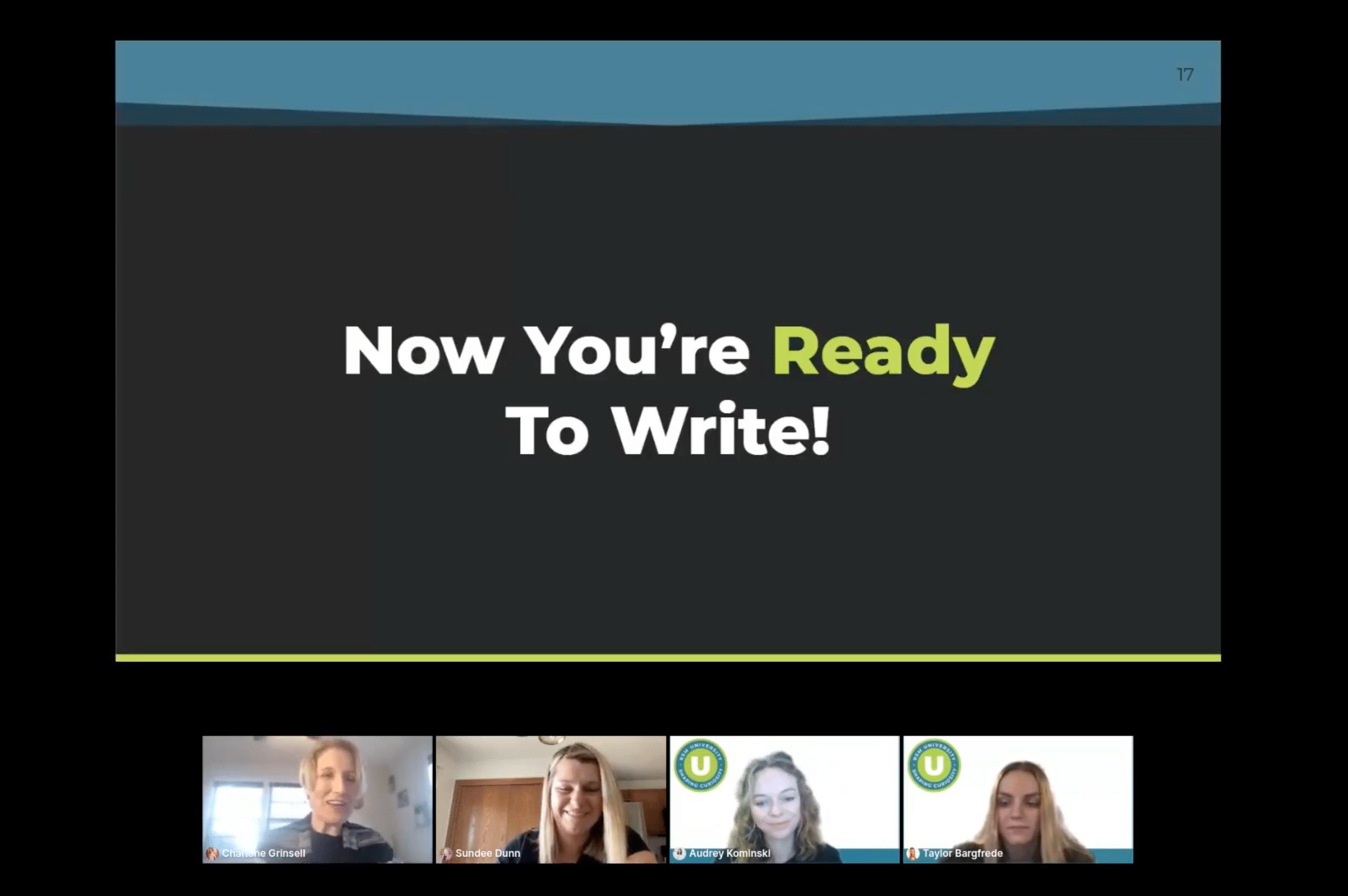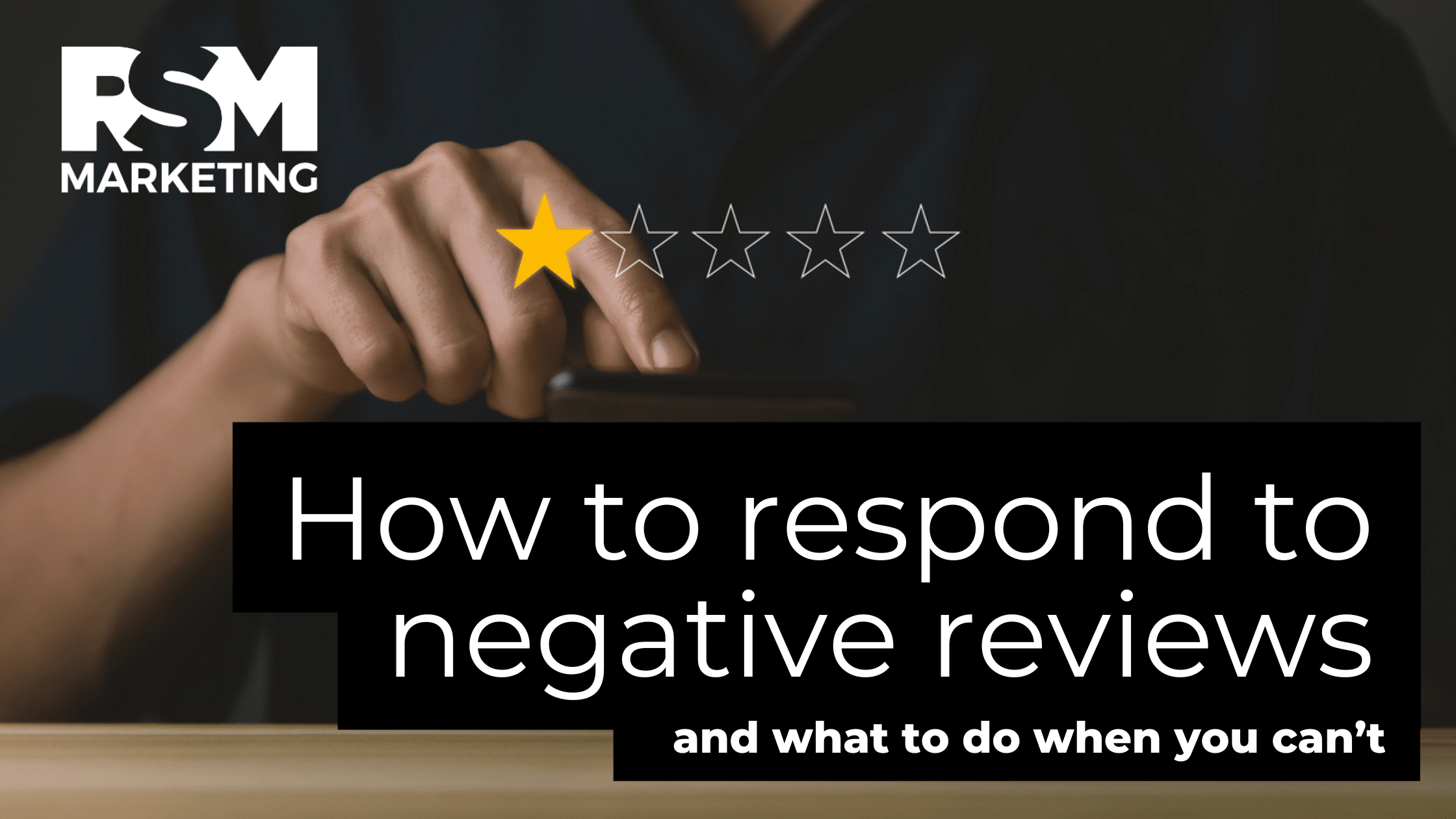In 2021, RSM Marketing launched RSM University, a series of online seminars hosted by our expert and insightful team members that dive deep into various digital marketing topics. We kicked off 2022 with Marketing Copy 101: Your English Teacher Would Hate This!, led by our Senior Copywriter, Charlene Grinsell.
In this seminar, Charlene discussed the basics of marketing copywriting and the ways in which it differs from, say, writing an essay for a college course. She also exposed some common misconceptions about copywriting. If you couldn’t make it to the event, don’t fret. You can click this link to watch the replay.
Main Points from the Seminar
If you are at all interested in this topic, we highly recommend you watch the event in its entirety (it’s fewer than 40 minutes long), but here are some of the main points from the seminar.
‘Marketing copywriting’ has two definitions: an old definition and a new definition.
The old definition is “any writing intended to get people to buy things.” The new definition is “any writing intended to make a connection and motivate action.”
Before you write any marketing copy, you need to establish your three Ws!
- Who are you writing for?
- Why are you writing it?
- What are you really selling?
Once you establish your three Ws, it’s time to start writing. When writing marketing copy, you need to keep the five Cs in mind! (Charlene really enjoys alliteration)
- Your copy needs to be Clear.
- Your copy needs to be Concise.
- Your copy needs to be Conversational.
- You need to Carry your readers through the copy.
- You need a specific Call-to-Action.
Other key points to keep in mind.
- If it’s not worth reading, it’s not worth writing!
- The reasons you write content are much different than the reasons people read your content.
Questions and Answers from the Seminar
Q: How do you make technical copy with industry jargon more accessible for the average person?
The first step is to analyze your audience. If the reader won’t understand industry jargon, you could include a glossary explaining key terms and abbreviations. You could also ask a subject matter expert or research whether or not a term needs explaining to a general audience.
Q: Should headlines be uppercase or sentence case?
It doesn’t matter which one you choose. The only thing that matters is that you stay consistent. If you use uppercase headlines throughout most of the article, one or two sentence case headlines will stick out and look like errors. It can be a stylistic choice, though. For example, we used sentence case headlines for these questions and uppercase headlines everywhere else.
Q: How long should copy be?
As long as it takes to get the point across. No more, no less. However, print pieces may have strict parameters. When it comes to SEO, pages with more words tend to rank higher than pages with fewer words. If you’re trying to optimize a blog or landing page for search engines, we recommend that you write no fewer than 400 words, but pages with at least 1,000 words tend to perform the best. If you have multiple short pages, try combining them!
We’ll See You at the Next RSM University Seminar!
One of our SEO specialists, Josh Gomer, will lead our next RSM University Seminar, titled Top 5 SERP Features to Help Your Website. This seminar will take place on January 26th at 11:00 AM (CST). If you want to learn more about SEO and optimizing your website to rank higher on Google, then you better register for this event now. Remember, if you can’t make it, you can still watch the replay once the event is over, but you still have to register. We hope to see you there!





